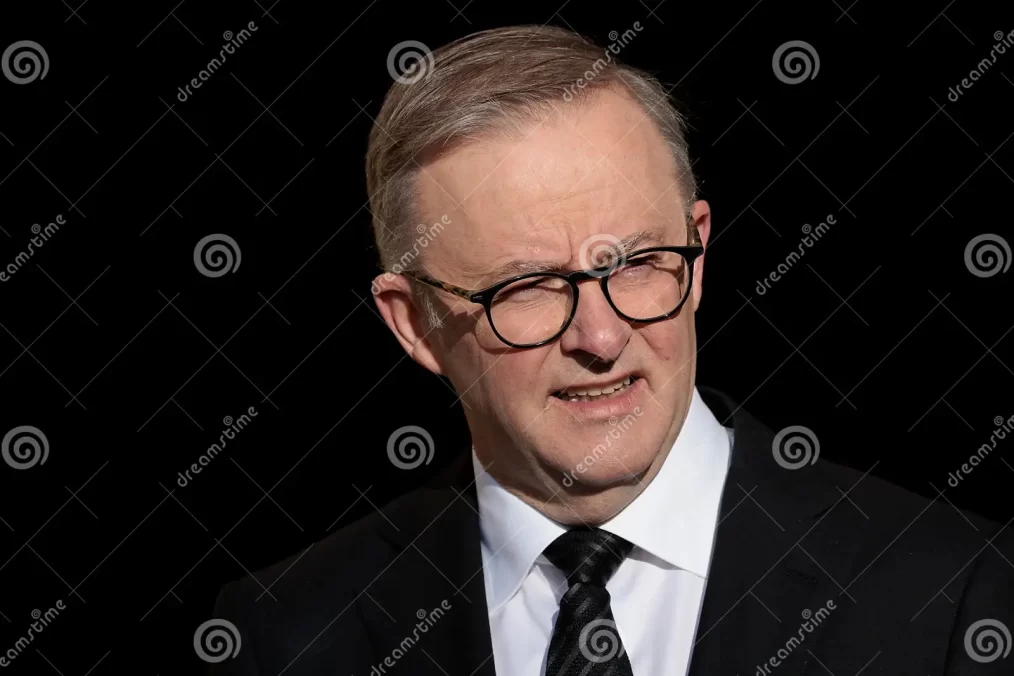
Prime Minister Anthony Albanese Labels Peter Dutton ‘Mean and Nasty’ Amid Heated Culture Wars
ABC News
Opposition Leader Peter Dutton has come under fire from Prime Minister Anthony Albanese, who accused him of being “mean-spirited” and engaging in divisive tactics as the Coalition ramps up criticism of Labor’s stance on key cultural issues. Dutton, however, has remained steadfast in his approach, arguing that Australia needs stronger leadership to tackle rising antisemitism and preserve national traditions, such as Australia Day on January 26.
Dutton’s recent announcement that he would reinstate a rule scrapped by Labor requiring councils to hold citizenship ceremonies on Australia Day has reignited the debate over the significance of the national holiday. He framed the move as a way to protect Australia’s cultural heritage and prevent a rewriting of the country’s history. “Australia Day is an important part of our identity. It’s a day to celebrate our achievements as a nation and reflect on our shared history,” Dutton stated.
This comes on the heels of Dutton’s claim that “every incident of antisemitism” in Australia since late 2023 could be attributed to Albanese’s weak leadership. He argued that the Prime Minister’s reluctance to take a firm stand against extremist rhetoric has emboldened hate groups. “We are witnessing one of the most shameful periods in our history, and the government’s failure to act decisively is putting minority communities at risk,” Dutton warned.
In contrast, Albanese has sought to downplay the controversy surrounding Australia Day and dismissed Dutton’s claims as fear-mongering. During an interview with ABC radio, he criticized the Opposition Leader’s rhetoric, calling him “cold-hearted, mean-spirited, and sometimes just plain nasty.” Albanese urged Dutton to avoid politicizing antisemitism and focus on fostering unity.
The back-and-forth exchange signals that this year’s election campaign could become highly personal, with character attacks dominating the political discourse. While economic concerns remain a top priority for voters, Dutton is clearly intent on steering the conversation toward cultural issues, framing them as central to Australia’s future cohesion.
Dutton’s supporters argue that his stance is not about sowing division but about standing up for values that many Australians hold dear. “Peter Dutton is calling out real issues that are affecting our communities. We cannot turn a blind eye to the rise in antisemitism or the erasure of our national traditions,” said a senior Coalition member.
However, Albanese’s allies contend that Dutton’s approach risks alienating minority groups and exacerbating societal tensions. They argue that his focus on culture wars distracts from more pressing concerns such as cost-of-living pressures and healthcare reforms.
The Executive Council of Australian Jewry has called for an end to the politicisation of antisemitism, urging both leaders to work together to address the issue meaningfully. “Antisemitism is a serious problem that requires bipartisan cooperation. It should not be used as a political football,” said the council’s spokesperson.
Despite calls for unity, it appears both leaders are preparing for a fiercely contested election campaign. Dutton’s strategy to reignite the culture wars under the banner of national unity suggests he believes these issues resonate with a significant portion of the electorate. The question remains whether voters will respond positively to this approach or if they will prioritise economic stability and practical solutions over ideological battles.
As the election draws closer, the divide between the two leaders’ visions for Australia is becoming increasingly stark. Dutton’s focus on protecting Australia’s traditions and combating hate speech is likely to appeal to conservatives and those concerned about cultural erosion. Meanwhile, Albanese’s emphasis on unity and addressing economic challenges could resonate with those seeking a more collaborative approach to governance.
What’s clear is that this election will be more than just a battle of policies, it will be a contest of character, values, and the very identity of modern Australia. The electorate will soon decide which vision they believe is best suited to lead the nation through the challenges ahead.





Who wrote this garbage, the economic problems have been caused by Labor, it is typical of them to suddenly want to address a problem they created, especially with an election nearing. Labor has never been able to manage the economy, the trouble today is history is not true, and has to be re-written to suit an agenda. I don’t like any of the party leaders while all they can say is “net zero”.